Nio IPO: Chinese electric car startup Nio made its way to the stock market, raising $1 billion in its IPO 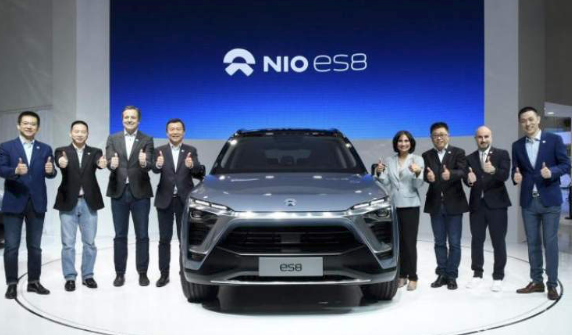 this week and market valuation at $6.42 billion; but that’s well below the $20 billion company executives had been initially hoping for. Shanghai-based Nio is targeting the premium electric-SUV segment, calling itself Tesla-competitive in its home market of China. Nio launched its first electric SUV in December, the seven-seat Nio ES8, which is priced at about half the cost of a Tesla Model X sport utility in China. Formerly known as NextEV, Nio says it will be bringing an autonomous EV to the U.S. by 2020. The ES6, an electric five-passenger SUV, is in development. Nio backers include Chinese internet giants Baidu and Tencent, as well as Chinese smartphone maker Xiaomi. Tencent also owns a small stake in Tesla stock.
this week and market valuation at $6.42 billion; but that’s well below the $20 billion company executives had been initially hoping for. Shanghai-based Nio is targeting the premium electric-SUV segment, calling itself Tesla-competitive in its home market of China. Nio launched its first electric SUV in December, the seven-seat Nio ES8, which is priced at about half the cost of a Tesla Model X sport utility in China. Formerly known as NextEV, Nio says it will be bringing an autonomous EV to the U.S. by 2020. The ES6, an electric five-passenger SUV, is in development. Nio backers include Chinese internet giants Baidu and Tencent, as well as Chinese smartphone maker Xiaomi. Tencent also owns a small stake in Tesla stock.
Tesla Inc. has been losing executives this year, with turbulence coming from the company transitioning into a mass market automaker with production of the Model 3. CEO Elon Musk’s erratic behavior has also taken its toll. Justin McAnear, vice president of worldwide finance and operation, said in a statement Wednesday that he is leaving to take the role of chief financial officer at another company. Tesla’s chief accounting officer, Dave Morton, announced his exit last week. The work pace at Tesla and the level of public attention of the company were cited as reasons for his departure. One executive, Jerome Guillen, may be able to keep pace with Musk’s intense demands. Guillen has been named president of automotive operations, and is known for being a skilled multitasker who’s been able to operate within the Tesla culture.
While President Trump’s high import tariffs have taken their toll on several industry sectors, solar power has been able to find growth and stability. Data reported on the the second quarter of 2018 showed signs of a market turnaround. Utility solar project procurement soared in Q2 2018 as component prices declined and home solar installations steadied after a 15% contraction last year, according to the latest U.S. Solar Market Insight Report from Wood Mackenzie Power & Renewables (previously known as GTM Research) and the Solar Energy Industries Association.
Volkswagen Group warned that it will be spending a lot more to meet its target for electric vehicle product launch. While the German automaker had originally estimated that 20 billion euros ($23 billion) would be going into it, CEO Herbert Diess says this will not suffice, without providing a new cost figure. The automaker needs to reduce expenses more to be able to invest in future technology and weather turbulent periods, he said. The target is huge — VW Group plans to launch 80 new EVs across its brands including Audi, Porsche, Skoda and Seat by 2025 and offer an electrified version of each of its 300 group models by 2030. “The burden for our company, such as the cost of bringing to market electric cars, will be higher than expected,” Diess said in a joint interview with labor head Bernd Osterloh in VW’s internal newsletter. “This is particularly so since some of our competitors have been making more progress.”
The International Council on Clean Transportation (ICCT) on Wednesday released its white paper analyzing the fuel efficiency of the 20 leading airlines on routes between the U.S. to Europe in 2017. Following rigorous scientific assessments, Norwegian once again rose to the top as the most fuel-efficient airline on transatlantic routes for a second time, also receiving this honor in 2015 when the ICCT released its first study.
Findings showed Norwegian, on average, achieved 44 passenger kilometers per liter, which is 33% higher than the industry average. Norwegian, flies one of the youngest fleets in the world, comprised of Boeing 787 Dreamliners, 737-800s and 737-MAXes.
Amazon continues to invest in the grocery delivery business, now expanding Whole Foods Prime Delivery to 10 additional U.S. cities. The full list of 38 cities now includes Charlotte, Las Vegas, Memphis, Nashville, New Orleans, Oklahoma City, Phoenix, Raleigh, Seattle, and Tucson. Coverage will also be expanding in New York, Los Angles and Dallas/Ft. Worth. Amazon acquired Whole Foods, known for its organic and locally-grown produce, last year for $13.7 billion.
ACT Research Co. forecasts commercial electric vehicles will make up a “significant share” of the Class 4 through Class 8 market in 2030 to 2035. Growth will be coming from U.S. truck makers, new startups, and engine manufacturer Cummins Inc. Interest is coming from fleet operators who need to reduce tailpipe emissions and reliance on diesel fuel. “They want to take it into production but it all depends on how that market votes,” ACT Research Co. Vice President Steve Tam said.




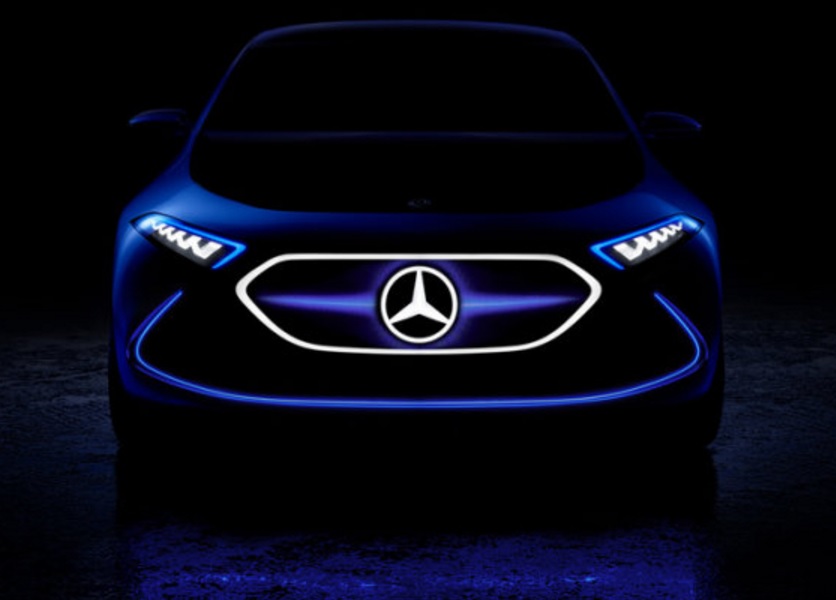 vehicles. Mercedes-Benz unveiled the Mercedes EQC all-electric SUV on Tuesday, and it will be Daimler’s first production model under the company’s electric EQ sub-brand. BMW next week will be flying the autonomous iNEXT electric crossover in a Boeing 777 Freighter to press events in Munich, New York, San Francisco, and Beijing. On Monday, Volkswagen’s Audi began mass production of the Audi e-tron, the brand’s first all-electric SUV with longer range. Audi will unveil the battery electric SUV at a world premiere in San Francisco on Sept. 17. It’s a good time to roll out these high-performance, premier EVs as Tesla and its leader, Elon Musk, face a series of challenges. Production problems for the high-volume Model 3 continue, as do controversial moments with Musk — made more so last night during a podcast (see below). Editor’s note:
vehicles. Mercedes-Benz unveiled the Mercedes EQC all-electric SUV on Tuesday, and it will be Daimler’s first production model under the company’s electric EQ sub-brand. BMW next week will be flying the autonomous iNEXT electric crossover in a Boeing 777 Freighter to press events in Munich, New York, San Francisco, and Beijing. On Monday, Volkswagen’s Audi began mass production of the Audi e-tron, the brand’s first all-electric SUV with longer range. Audi will unveil the battery electric SUV at a world premiere in San Francisco on Sept. 17. It’s a good time to roll out these high-performance, premier EVs as Tesla and its leader, Elon Musk, face a series of challenges. Production problems for the high-volume Model 3 continue, as do controversial moments with Musk — made more so last night during a podcast (see below). Editor’s note:  standards. The Trump administration had set off protests and lawsuit filings with its Safer and Affordable Fuel Efficient Vehicles rule that would freeze the mpg and emissions rules at 2020 levels through 2026. It would also take away California’s power to set state emissions rules — which is being followed by a dozen other states and the District of Columbia. Officials said they agreed to hold future meetings to work out the national fuel economy and greenhouse gas emission standards. California Air Resources Board chair Mary Nichols last month told Reuters that she sees a “window” to making a deal this fall.
standards. The Trump administration had set off protests and lawsuit filings with its Safer and Affordable Fuel Efficient Vehicles rule that would freeze the mpg and emissions rules at 2020 levels through 2026. It would also take away California’s power to set state emissions rules — which is being followed by a dozen other states and the District of Columbia. Officials said they agreed to hold future meetings to work out the national fuel economy and greenhouse gas emission standards. California Air Resources Board chair Mary Nichols last month told Reuters that she sees a “window” to making a deal this fall.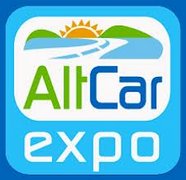 2018, at the Santa Monica Civic Auditorium. This year’s conference will focus on California’s trailblazing commitment to alternative technology transportation, infrastructure and energy. “AltCar has become the most nationally respected event for industry, municipalities and general public that showcases the latest products, news and information for alternative technology vehicles and infrastructure,”says California State Senator Fran Pavley.
2018, at the Santa Monica Civic Auditorium. This year’s conference will focus on California’s trailblazing commitment to alternative technology transportation, infrastructure and energy. “AltCar has become the most nationally respected event for industry, municipalities and general public that showcases the latest products, news and information for alternative technology vehicles and infrastructure,”says California State Senator Fran Pavley.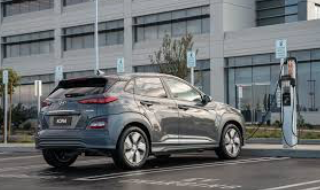 108 highway, and 120 combined. The range rating puts it in a small league with above 200-miles per charge vehicles that includes the Chevy Bolt, Tesla Model 3, Tesla Model S, and Tesla Model X. The Kona Electric is powered by a 64 kWh battery that has a 150 kW and 395 Nm electric motor (front-wheel drive), and a top speed of 104 mph. It has 100 kW CCS Combo DC fast charging capability.
108 highway, and 120 combined. The range rating puts it in a small league with above 200-miles per charge vehicles that includes the Chevy Bolt, Tesla Model 3, Tesla Model S, and Tesla Model X. The Kona Electric is powered by a 64 kWh battery that has a 150 kW and 395 Nm electric motor (front-wheel drive), and a top speed of 104 mph. It has 100 kW CCS Combo DC fast charging capability. provocative tweet Tuesday
provocative tweet Tuesday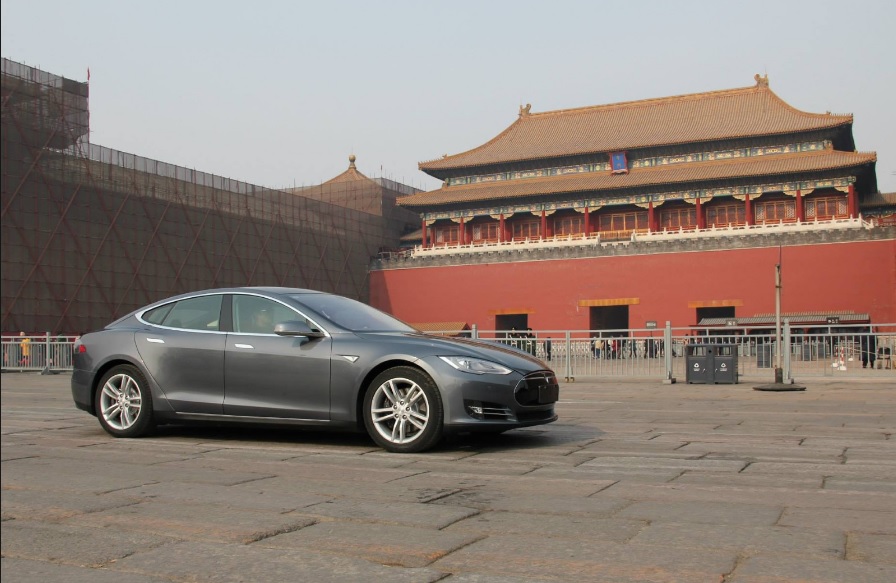 100% of the plant. BMW, which has been in Chinese joint ventures for years, will become the first foreign automaker to own a majority share of a Chinese automobile venture. The trade war continues to escalate, with China on Wednesday vowing to add another $200 billion in U.S. tariffs in retaliation to President Trump’s moves. Tesla CEO Elon Musk made the deal on Tuesday for the Shanghai plant, which the company said will double its vehicle manufacturing capacity. The plant could cost $1 billion to built, and construction will start early next year. Tesla could be the first of many companies setting up shop in one of China’s free-trade zone that sidesteps its typical requirement for joint-ventures with Chinese companies. Beyond expanding the BMW Brilliance Automotive partnership, BMW inked a deal with Great Wall Motor to produce Mini electric vehicles through a new 50:50 joint venture, Spotlight Automotive Limited, which will be dedicated to developing and producing EVs in China.
100% of the plant. BMW, which has been in Chinese joint ventures for years, will become the first foreign automaker to own a majority share of a Chinese automobile venture. The trade war continues to escalate, with China on Wednesday vowing to add another $200 billion in U.S. tariffs in retaliation to President Trump’s moves. Tesla CEO Elon Musk made the deal on Tuesday for the Shanghai plant, which the company said will double its vehicle manufacturing capacity. The plant could cost $1 billion to built, and construction will start early next year. Tesla could be the first of many companies setting up shop in one of China’s free-trade zone that sidesteps its typical requirement for joint-ventures with Chinese companies. Beyond expanding the BMW Brilliance Automotive partnership, BMW inked a deal with Great Wall Motor to produce Mini electric vehicles through a new 50:50 joint venture, Spotlight Automotive Limited, which will be dedicated to developing and producing EVs in China.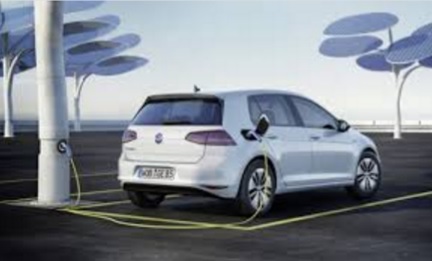 the list, so far securing $422.6 million going toward zero-emission heavy-duty trucks, buses, and charging stations. Texas was second, at $209.3 million, Florida third at $166.3 million, New York fourth at $127.7 million, and Pennsylvania in fifth place at $118.6 million. The next five on the list were Washington state at $112.7 million, Illinois at $108.7 million, Virginia at $93.6 million, North Carolina at $92 million, and Maryland at $75.7 million. School buses are a priority for several states that have received funds. More than 10 states have finalized their plans, according to the Sierra Club. State officials are deciding how the money will be spent meeting guidelines under the settlement. The funding must go towards reducing nitrogen oxides (NoX), a major component of air pollution. Only 15% can go toward the electric vehicle charging infrastructure. The settlement funds are being divvied up based on how many Volkswagen diesel cars with emission-cheating software were registered within each state.
the list, so far securing $422.6 million going toward zero-emission heavy-duty trucks, buses, and charging stations. Texas was second, at $209.3 million, Florida third at $166.3 million, New York fourth at $127.7 million, and Pennsylvania in fifth place at $118.6 million. The next five on the list were Washington state at $112.7 million, Illinois at $108.7 million, Virginia at $93.6 million, North Carolina at $92 million, and Maryland at $75.7 million. School buses are a priority for several states that have received funds. More than 10 states have finalized their plans, according to the Sierra Club. State officials are deciding how the money will be spent meeting guidelines under the settlement. The funding must go towards reducing nitrogen oxides (NoX), a major component of air pollution. Only 15% can go toward the electric vehicle charging infrastructure. The settlement funds are being divvied up based on how many Volkswagen diesel cars with emission-cheating software were registered within each state. new
new 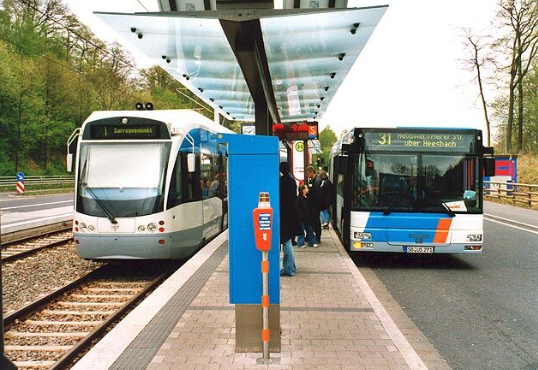 the vote activism from Koch brothers-funded Americans for Prosperity. That group is seeing success fighting against other public transit projects around the country. The Koch brothers want to see public transit go away and government funds go into restoring highways and roads. The Koch Industries conglomerate is a major producer of gasoline and asphalt, and also makes seatbelts, tires, and other automotive parts. The Trump administration had promised to back highway infrastructure funding, but that has faded away. Americans for Prosperity is now filling some of that void. Supporters of transit project investments say that having light-rail and more buses reduces traffic congestion and air pollution in a city. They also see transit as a platform for bringing in more electric and alternative fuel-powered buses. The
the vote activism from Koch brothers-funded Americans for Prosperity. That group is seeing success fighting against other public transit projects around the country. The Koch brothers want to see public transit go away and government funds go into restoring highways and roads. The Koch Industries conglomerate is a major producer of gasoline and asphalt, and also makes seatbelts, tires, and other automotive parts. The Trump administration had promised to back highway infrastructure funding, but that has faded away. Americans for Prosperity is now filling some of that void. Supporters of transit project investments say that having light-rail and more buses reduces traffic congestion and air pollution in a city. They also see transit as a platform for bringing in more electric and alternative fuel-powered buses. The 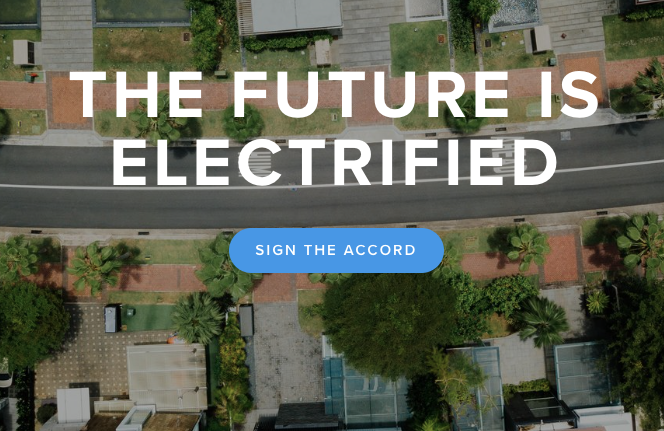 electrification can be moved forward. Principles have been endorsed on building the needed energy infrastructure to guide local, state, and federal policymakers. Other organizations endorsing the accord include CALSTART, Ceres, Consumer Federation of America, Consumers Union, Electrification Coalition, NRDC, Plug In America, Sierra Club, Union of Concerned Scientists, utility companies, and Clean Cities coalitions. Britta Gross, director, GM’s advanced vehicle commercialization policy, said that “the accord lays out the essential building blocks for a compelling energy infrastructure that we can all rely on for decades to come. Innovations in transportation electrification will benefit society as a whole — and cross-industry, multi-stakeholder cooperation is key.”
electrification can be moved forward. Principles have been endorsed on building the needed energy infrastructure to guide local, state, and federal policymakers. Other organizations endorsing the accord include CALSTART, Ceres, Consumer Federation of America, Consumers Union, Electrification Coalition, NRDC, Plug In America, Sierra Club, Union of Concerned Scientists, utility companies, and Clean Cities coalitions. Britta Gross, director, GM’s advanced vehicle commercialization policy, said that “the accord lays out the essential building blocks for a compelling energy infrastructure that we can all rely on for decades to come. Innovations in transportation electrification will benefit society as a whole — and cross-industry, multi-stakeholder cooperation is key.”